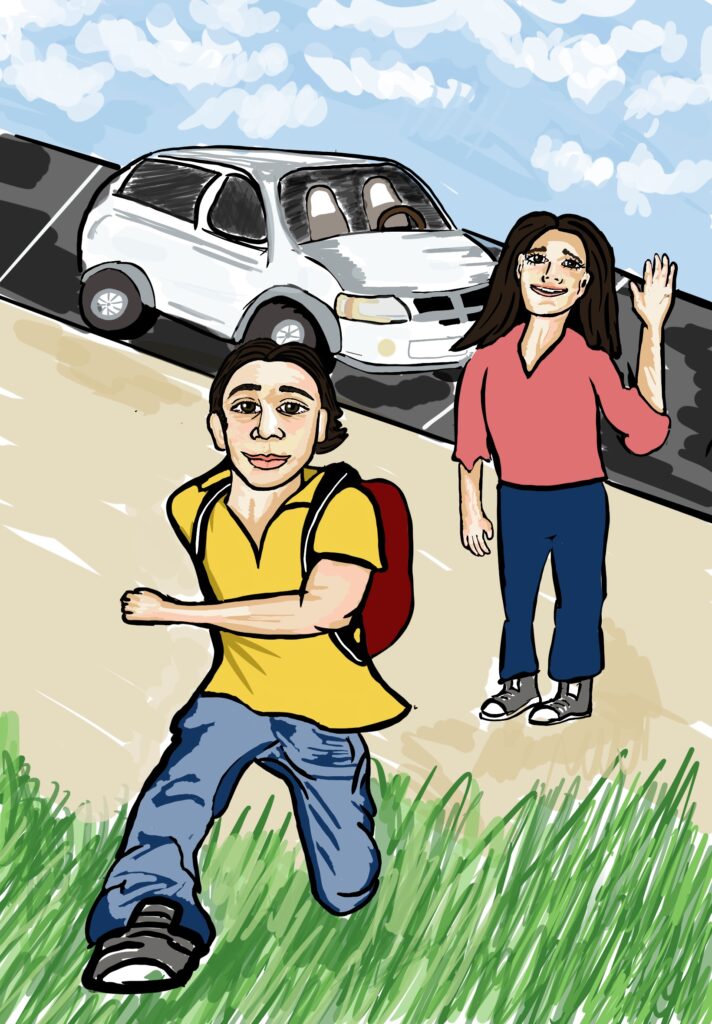At Choate and around the world, veganism has begun to enter the mainstream. In the past, refraining from consuming animal products has been a movement marred by stereotypes and misconceptions, espoused only by a small number of dedicated animal rights activists. Today, it has become a popular lifestyle choice endorsed by scores of celebrities, including New Jersey Senator Corey Booker, founder of Def Jam Recordings Russell Simmons, and world record-holding strongman competitor Patrik Baboumian. Despite its common misconception as a “fad diet” and its role as the butt of constant jokes, veganism remains a relevant topic in sustainability and ethics. The truth is that plant-based diets are here to stay, as they offer solutions to many of the most pressing problems facing our world.
While there is a plethora of compelling reasons to become a vegan, I only want to cover one in this article: the dreaded ethical argument, or the belief that it is morally wrong to eat animals or their products. Many believe that veganism is morally the right thing to do. Animals used to create the products that vegans choose not to consume often live lives full of immense suffering. Beef is mostly raised in factory farms, where cows are tightly cramped in squalid conditions for their entire lives. Broiler chickens, or chickens used for meat, are kept in hot, dark sheds. They regularly develop disfigurations due to their inability to move about, and frantically peck each other out of neurotic boredom, leaving large wounds that regularly become infected. The solution to this for many chicken producers is a process in which the beaks of the chickens are burned off. It is not unusual that the only time these birds see sunlight is when they are taken out of the shed to be slaughtered. Other animals, such as pigs and sheep, are treated just as poorly. Few contest the fact that the animals we use for food suffer greatly. For anyone who has doubts on this, the documentary Earthlings on YouTube reveals graphic footage of the inhumane treatment of animals that eventually become our food.
A common argument used against veganism is that since animals are not human, their suffering does not matter. Discussion of ethics can be difficult; moral beliefs are formed by a variety of factors, including an individual’s upbringing, culture, religion, and personal reflection, all of which can fluctuate drastically from person to person. There is a huge body of legitimate viewpoints and differing opinions. However, it is not controversial to say that most people in the world believe that avoidable torture and killing is morally wrong. The majority will agree that it is morally wrong to needlessly torture or kill a dog, cat, or other domesticated animal commonly seen as a pet. In comparison, a much smaller group of people are willing to extend this assertion to animals we use as food, like cows. pigs, or chickens.
Lack of intelligence is often brought up as a justification for the suffering of these animals: “Since nonhuman animals are not as intelligent as humans, it is not wrong to cause them suffering?” If one is willing to live by this idea, one must also be willing to acknowledge that “dumber” people deserve to suffer more than smarter people — in other words, that it would not be as wrong to cause suffering to someone who is severely brain damaged as it would be to cause suffering to a human without a disability. Few in our modern culture would agree to this, and it is exactly this sort of flawed reasoning that has repeatedly justified genocide of human beings perceived to be inferior.
As a society, we strive to uphold the egalitarian doctrine that all humans have fundamental rights — including the right to be free from torture. These rights do not stem from a person’s intelligence, but from the fact that he or she is a sentient being with the capacity to suffer and be happy. Ideally, one would not afford more of a right to not suffer based on one’s intelligence, athletic prowess, or any other arbitrary qualifier. Why then, do we not take animals into consideration when affording certain fundamental rights, like the right to be free from torture or needless killing? A human infant has the right to be free from torture. A brain-damaged person has the right to be free from torture. Yet a pig, which could theoretically have the same cognitive abilities as either the infant or the brain-damaged person, is forced to lead a miserable life in a metal box. The pig has the same capacity to suffer as the infant. It feels physical pain just as much as a brain-damaged person would, or any of us for that matter. Furthermore, a pig’s needs are simple and easily met. Our discrimination toward sentient nonhuman animals is completely arbitrary, similar to the arbitrary discrimination of racism, sexism, and ableism. These are “-isms” that Choate, as a community, works ceaselessly to combat. And the reason why the color of one’s skin or one’s sexual preference should not subject that person to torture is the same reason why one’s existence as an animal should not subject it to torture. To ignore the discrimination that allows billions of animals yearly to suffer with reason other than to satisfy human demand for tasty food is utter hypocrisy.
Ethical veganism is most closely tied to “preachy vegan”; no one likes to be preached to against their will, and perhaps this is why the word “vegan” has a negative connotation for many people. Re-evaluating one’s own moral principles is never easy. In fact, I first went vegan because of the immense environmental benefits. It was only after I had become immune to the criticism of the movement that I was able to truly accept the moral implications of the animal industry. I sincerely believe that Choate is a community of open-minded people who are willing to consider views different from their own, and even change their pre-existing beliefs when presented with new information.
I am not writing this because I think that meat-eaters are evil people who need to be harangued, condemned, and bullied into my way of thinking. I’m writing because I think people generally want to do the right thing, and if one chooses to become vegan, or even reduce one’s consumption of meat and other animal products, I believe that that person will be doing the right thing. They won’t be alone — at Choate, at likeminded institutions, and across the world, supporters have together created a powerful animal rights movement. Whether or not to join it is a tough decision. Tough decisions like these separate those who are committed to justice from those who are simply in it for the image or self-comfort. It’s easy to be an apathetic member of the crowd — no one will call you out if you don’t take a stand. I implore you to think about who you want to be.





